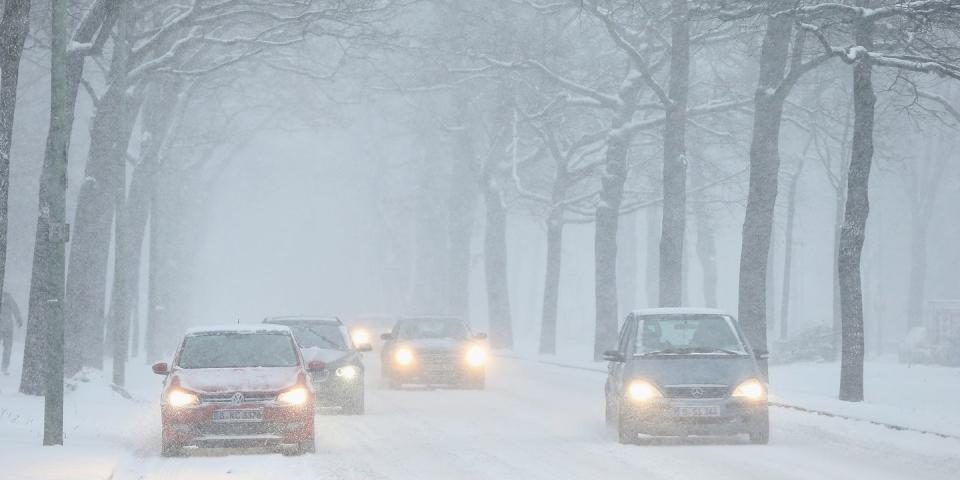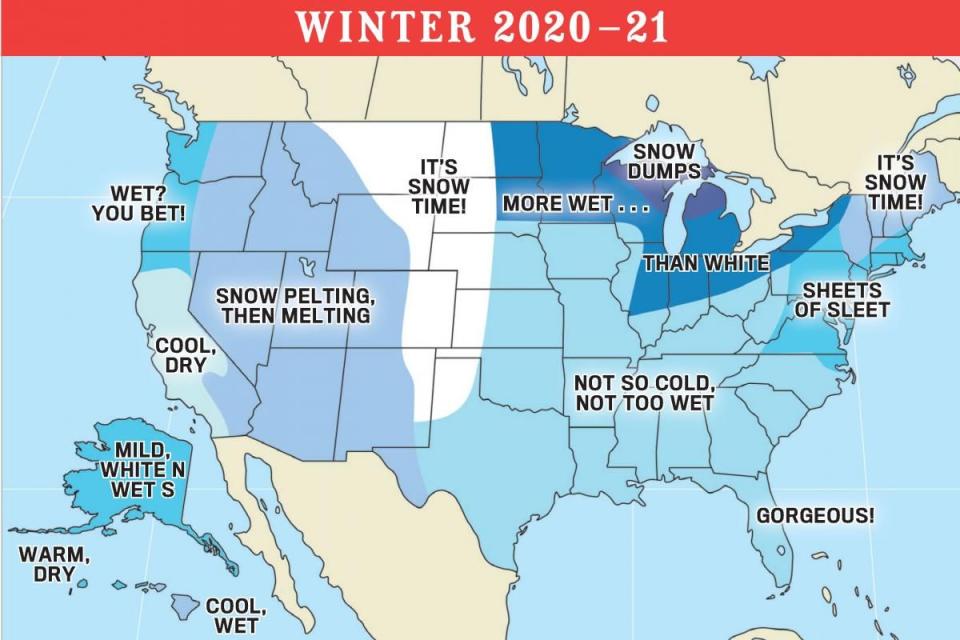The Old Farmer's Almanac Just Released Its Predictions for Winter 2021

Wait just one second before going to buy a new heavy coat in preparation for winter.
If the Old Farmer's Almanac has anything to say about it, this year you might just not need one.
Thanks to rising temperature trends across the world, the age-old weather prediction publication anticipates a less harsh winter than past years.
“For the United States, we predict that recent warming trends will dominate in the eastern and northern parts of the United States in the coming winter, with below-normal average temperatures limited to the western portion of the nation,” they divulged in their 2021 Winter Weather Forecast, which went live on August 18. “Most of Canada will have a cold and snowy winter. However, rising temperature trends mean that the winter will not bring extreme cold; instead, it will be closer to normal.”

Additionally, the experts pointed out that the coldest temperatures will occur largely just in the "western states and northeastern New England," with mostly "wet" precipitation rather than snow across the majority of the country.
"On the precipitation side of things, expect 'wet' to be a wintertime constant, with rain or average to below-average snowfall to be the standard throughout most of the country."
However, a few areas of the U.S. will in fact experience some heavier-than-usual snow: "Snowfall will be greater than normal in the Northeast, Wisconsin, Upper Michigan, the High Plains, and northern Alaska and below normal in most other areas that receive snow."
Video: 2019 Farmer’s Almanac forecast a wet winter
In case you forgot, The Old Farmer's Almanac, which was founded in 1792, has been releasing weather predictions since George Washington was president. Each year, the authors of the Almanac go back to see just how accurate their predictions were for the previous year. When it comes to the 2019-2020 winter season, they found that they were 80.5% accurate, which is just above their typical 80%.
All this is to say, even in the middle of a pandemic, we might actually have something to look forward to this winter.
You Might Also Like

